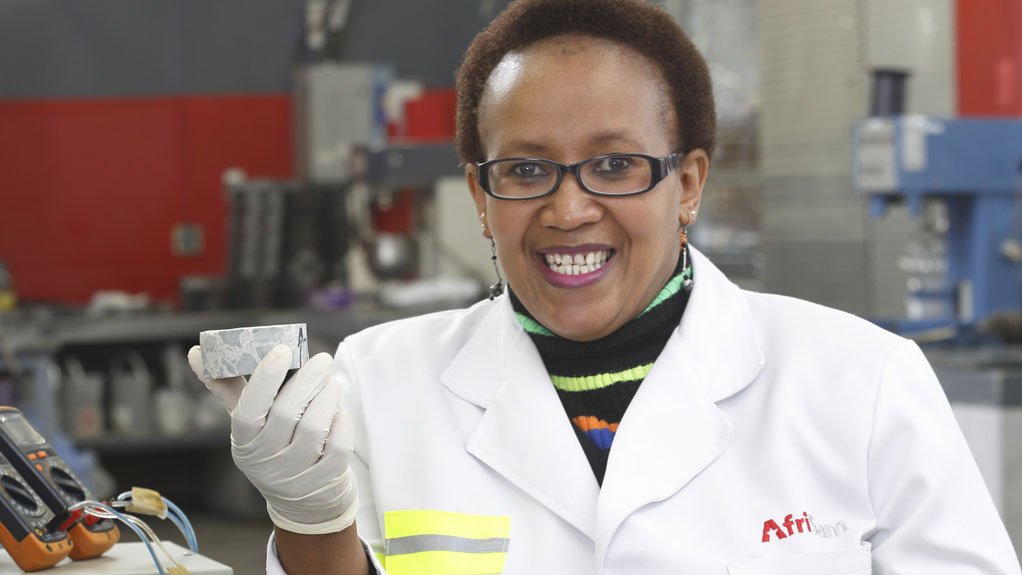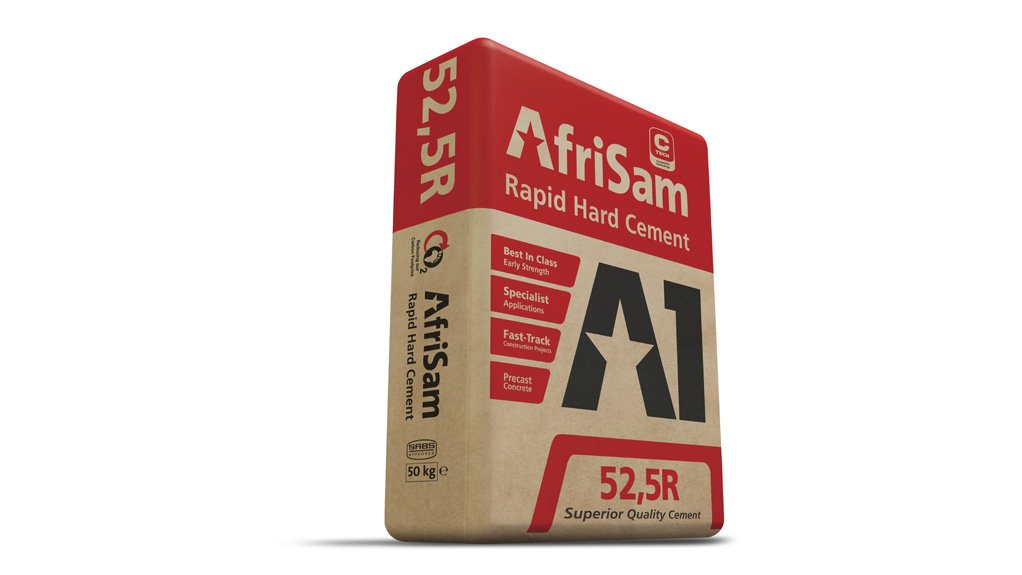Cement and construction materials supplier AfriSam is providing additional support for its Concrete Product Manufacturers (CPMs) customers through its new Efficiency Audit service offering.
AfriSam national sales manager Amit Dawneerangen says there has been a downturn in infrastructure projects locally. “Infrastructure projects are necessary for CPMs to sell their products, and this downturn has increased pressure, necessitating [the consideration of] operational efficiencies to reduce costs.”
This has subsequently been the catalyst for AfriSam's new offering, which was implemented at the beginning of this year as extra support for customers to ensure that they remain profitable, he notes.
The support is also a new feature of AfriSam’s Centre of Product Excellence facility, in Roodepoort, Gauteng. Dawneerangen explains that a team of technical experts are dispatched to a customer’s manufacturing operation to conduct an audit on the process taking place. This provides a “fresh set of eyes”, as people working at the same operation daily become accustomed to it and might miss opportunities for improvement.
This team covers the entire process, from the starting point of constituent material selection to the finished concrete product. The company has produced, through its experience, a checklist of items to identify areas of improvement in the facility, he adds.
“Once this has been conducted, the management team is briefed regarding the results, even in the case where operational efficiency is at its optimum, with no need for improvements. “When manufacturers have not kept up with the latest developments and trends in production, this service can mitigate [the situation],” Dawneerangen explains.
Moreover, he notes that AfriSam can draw from the experience and progress gleaned from several readymix concrete plants operated by the company nationally in its provision of these advisory services.
Though still in its infancy, the service has been offered to one of AfriSam’s biggest clients, with plans to roll it out to other CPM customers over time.
Dawneerangen notes the only challenge experienced has been the reluctance by some operational staff to have “outsiders” evaluate their operations and scrutinise their daily work. However, there has been good buy-in by senior management from the companies AfriSam has approached.
To mitigate this reluctance, a preaudit meeting is conducted, where the intentions of the audit are clearly outlined and freedom to participate is emphasised. The meeting aims to clarity to staff that the audit is not being done on the order of senior management, but is an additional service offered by AfriSam to improve productivity.
This service is mutually beneficial, as it ensures an optimised process for CPMs and strengthens the relationship with customers, enabling AfriSam to offer continued service provision.
Streamlining Operations
Several inputs can determine how profitable manufacturing operations are for concrete products, and Dawneerangen highlights the constituent materials that are used to manufacture the products as one of the biggest inputs.
“CPMs essentially buy cement and aggregates, and combine them to create another product such as a brick or a roof tile,” Dawneerangen says, dispelling the misconception people may have that ‘cement is just cement’. The product found in a bag is mistakenly believed to be suitable for any application.
He highlights the cost of cement as the priciest component in manufacturing. As such, this is where he believes that manufacturing operations are not optimised, as they are not fully using the properties of different cements to their full potential.
“To help subvert this, AfriSam has developed specific cement products over the years that have been tailor-made for specific applications, which takes into account the demands of customers.”
Dawneerangen cites AfriSam’s Rapid Hard Cement (RHC) as an example, with RHC having been specifically designed to achieve the high early strength that is required by manufacturing operations.
Dawneerangen explains that most CPM products are made in moulds that form the product. Therefore, the quicker the moulds are turned around and the product demoulded, the more efficient, or productive, manufacturers are. This necessitates a very high early strength performance and consistency, as a variation will impact on productivity, owing to inconsistent demoulding times.
He indicates that AfriSam is currently the only manufacturer in South Africa producing a cement product in the 52.5R strength class, which is the highest-strength class possible, according to South African cement specifications.
According to the specification, AfriSam RHC 52.5R needs to achieve a two-day strength of 30 MPA. When compared with the closest strength class – 52.5N – which needs to achieve only a two-day strength of 20 MPA, it is “far superior” to any product currently on the market, says Dawneerangen.
He emphasises that it should be ensured that RHC is used correctly. Ensuring this correct use is facilitated through the centre’s team of technical experts, which provides technical support on site for customers.
Moreover, Dawneerangen notes that, since RHC’s implementation, sales have increased year-on-year. RHC is not required to be used on all concrete applications, but has a niche market, such as applications where high early strength is required and when concreting in cold weather conditions, but more manufacturers are entering this space and adopting this product.
AfriSam RHC is a sophisticated product developed using the latest cement production technology. Its effectiveness should not be measured against price by comparing it to other cement products available, but rather against its ability as a concrete offering at the lowest possible cost.
Edited by: Zandile Mavuso
Creamer Media Senior Deputy Editor: Features
EMAIL THIS ARTICLE SAVE THIS ARTICLE
ARTICLE ENQUIRY
To subscribe email subscriptions@creamermedia.co.za or click here
To advertise email advertising@creamermedia.co.za or click here















